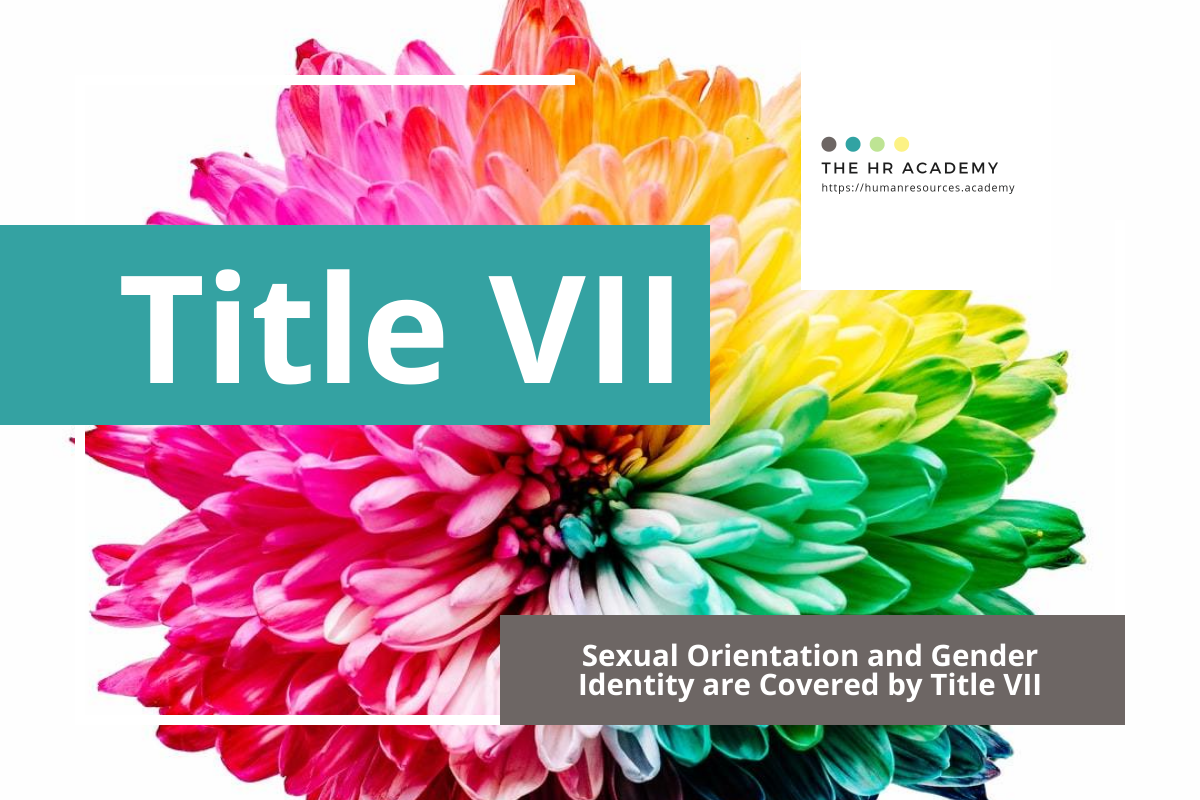Protections for Sexual Orientation and Gender Identity

Sexual-Orientation-01
What Would You Do?
Q. How would you respond? An employee you hired last year, Wyatt, begins presenting as female, wearing dresses to work and asking that you and her coworkers refer to her as “Wyndi.” Wyndi requests to have her signature line changed. Although there is no issue with dress code or other policies, several of your staff complain to you about their discomfort with Wyndi’s transgender status. How would you handle Wyndi’s requests and those of her coworkers?
Q. What would you do? Your supervisor tells you to keep a close eye on Wyndi and to let her know if Wyndi does anything that would justify termination. Even though Wyndi has excellent performance, it is clear that your supervisor is looking for a reason to discharge her, regardless.
Sexual-Orientation-01-PPTThe Case
In Bostock v. Clayton County, Georgia, the Supreme Court held that Title VII protections based on sex extend to sexual orientation and gender identity. The Court did not rely on arguments related to sex stereotyping or discrimination by association, but instead emphasized the plain text of the Civil Rights Act’s Title VII language about sex. The Court reasoned that discrimination based on sexual orientation or gender identity automatically involves discrimination based on sex, because they are inextricably connected. In other words, there cannot be discrimination on the basis of sexual orientation or gender identity without discrimination based on sex. The Supreme Court used analogies of same-sex marriage and transgender status to illustrate how, but for one’s sex, differing treatment on the basis of sexual orientation or gender identity would not otherwise occur. In its decision, the Court did not weigh other statutes or Constitutional Amendments related to religious freedoms.
Bostock v. Clayton County, Georgia, No. 17-1618 (S. Ct. June 15, 2020).
Employment Best Practices
The Commission Enforces
- 42 U.S.C. § 2000e-2 (Section 703)
This is the section of the law that was at issue in Bostock and applies to the private sector, state and local governments, employment agencies, and labor organizations. Bostock made clear that section 703’s prohibition of discrimination based on sex includes sexual orientation and transgender status.
- 42 U.S.C. § 2000e-16 (Section 717)
Section 717 covers employees of the federal government. The Commission has issued several federal sector decisions under section 717 finding discrimination based on the sexual orientation and transgender status of federal employees.
More available at EEOC.gov
The Bottom Line
Discrimination against someone because of their sexual orientation or gender identity is illegal under Title VII of the Civil Rights Act of 1964, as amended. Sexual orientation, gender identity, and sex are all connected, and Title VII expressly prohibits discrimination based on sex. Though the Court did not weigh religious freedom issues, it clearly linked sex with sexual orientation and gender identity, moving away from earlier arguments related to association or sex-based stereotypes.
Disclaimer: Nothing in the HR Academy’s Expert Toolkits and online resources constitutes legal advice. Our informative resources provide Human Resources professionals with useful information related to federal employment law and recent court cases in a variety of jurisdictions. Always consult an attorney with employment law questions. Also note that not all cases in the Academy’s Expert Toolkits constitute mandatory authority in every jurisdiction. While Supreme Court cases are mandatory authority, circuit court decisions and U.S. District Court decisions relate to the specific jurisdiction in which the case was heard. The HR Academy does not provide legal advice, and our Expert Toolkits are provided solely as informational supplements for training and staff development.